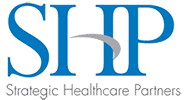How to Bill: Transitional Care Management
Transitional Care Management (TCM) bolsters the involvement of primary care physicians in the coordination of post-discharge care to reduce readmission. Patients with moderately complex diagnoses are eligible to receive TCM services during a 30-day window after their discharge from an inpatient acute care hospital, inpatient psychiatric hospital, long-term care hospital, skilled nursing facility, inpatient rehabilitation facility, or hospital outpatient observation.
Physicians must make interactive contact with the beneficiary and/or caregiver within two business days following the beneficiary’s discharge. This contact may occur via telephone, e-mail, or face-to-face. Successful direct contact must be documented, therefore voicemails or e-mails without responses will not qualify.
One face-to-face visit must occur within the timeframes as described by CPT 99495: Moderately Complex -14 Days; 99496 Highly Complex-7 days.
Additionally, non-face-to-face services are required unless deemed not medically necessary. These services may be furnished by licensed clinical staff under the general supervision of a physician. This team-based care approach offers flexibility for clinical staff to locate beneficial resources and communicate regularly with their patients while working “at the top of their licenses.” Licensed clinical staff are expected to provide education, self-management advice, and encourage treatment regimen adherence.
How do we bill TCM?
The three requirements for TCM Billing
1. Interactive Contact made within 2 business days of discharge
2. Face-to-face service within 7- or 14- calendar days of discharge, depending on complexity
3. Non-face-to-face services rendered by licensed clinical staff
The following documentation within the patient’s record is essential:
➢ Discharge Date
➢ Date interactive contact was made
➢ Date the face-to-face visit occurred
➢ The complexity of medical decision making
Who may furnish which non-face-to-face TCM services?
Physicians (any specialty) and Non-physician practitioners (NPPs) including Certified nurse-midwives (CNMs), Clinical nurse specialists (CNSs), Nurse Practitioners (NPs), Physician Assistants (PAs) may furnish the following non-face-to-face services:
o Obtain and review discharge summary or continuity of care documents
o Review need for follow-up on pending diagnostic tests and treatments
o Interact with other healthcare professionals who will assume or reassume care of the beneficiary’s system-specific issues
o Provide education to the beneficiary, family, guardian, and/or caregiver
o Establish or re-establish referrals and arrange for needed community resources
o Assist in scheduling required follow-up with community providers and services
• Clinical staff under general supervision of a physician or NPP, under applicable state law may furnish the following non-face-to-face services:
o Communicate with agencies and community services applicable to the beneficiary
o Provide education to the beneficiary, family, guardian, and/or caretaker to support self-management, independent living, and activities of daily living
o Assess and support treatment medication adherence and treatment regimen compliance
o Identify available community resources
o Assist the beneficiary in accessing needed care and services
Common Considerations
➢ TCM services can be reported even if the patient is re-admitted
➢ The face-to-face visit may not occur on the day of discharge
➢ Report reasonable and necessary evaluation and management services (other than the required face-to-face visit) separately
➢ TCM services cannot be paid if any of the TCM period falls within a global period for a procedure code billed by the same practitioner
➢ The place of service of the face-to-face visit is to be reported on the claim
➢ Only one health care professional may report the TCM services
➢ When billing 99495 & 99496, You may not also report the following codes:
o Care plan oversight services: Healthcare Common Procedure Coding System (HCPCS) G0181 and G0182
o End-stage Renal Disease services: 90951-90970
o Medical Team Conferences 99366-99368
o Telephone Services: 98966-98968, 99441-99443
o Chronic Care Management (CCM) and TCM service periods cannot overlap
More Info: Transition Care Management Services – Medicare Learning Network
